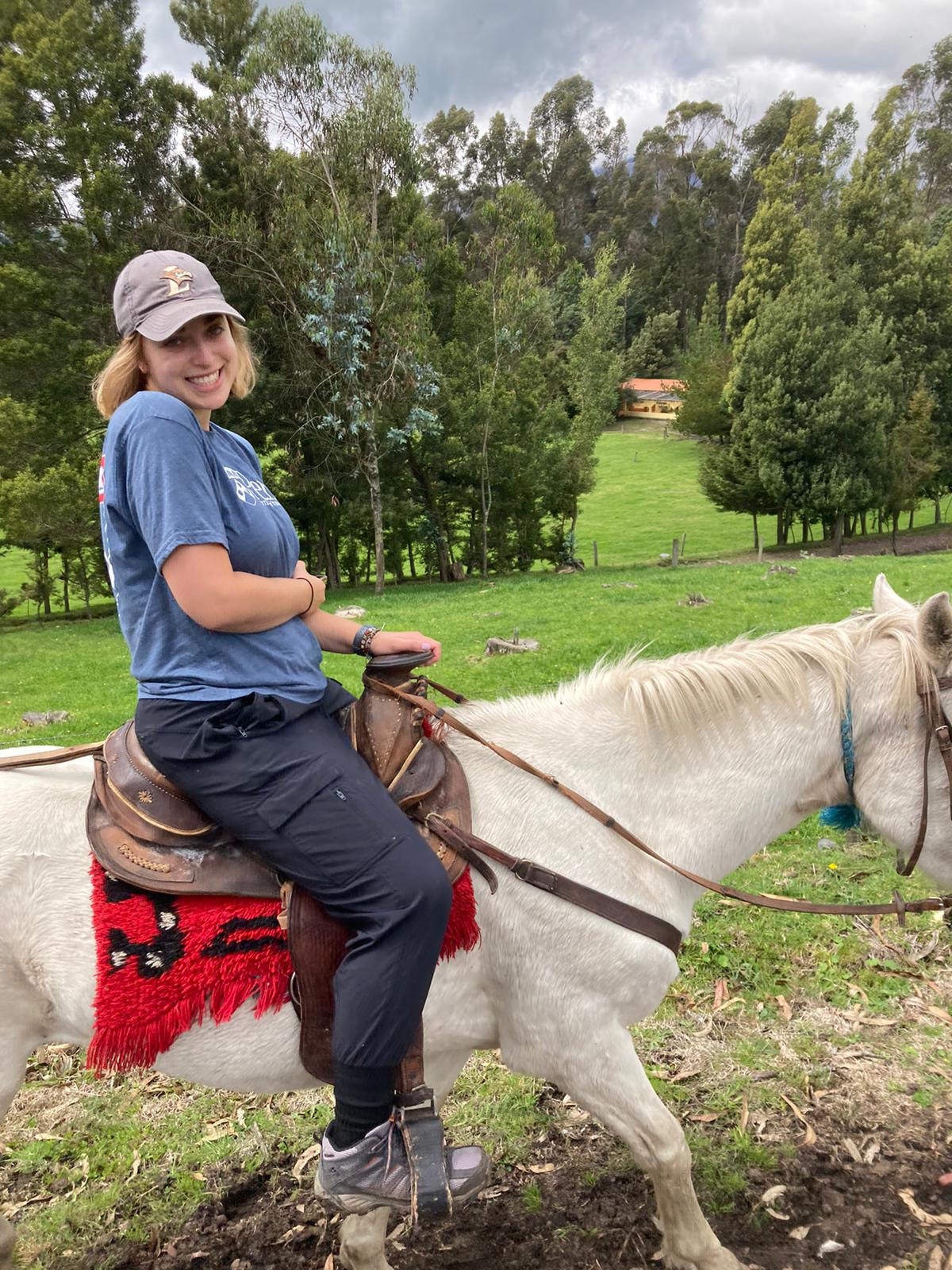Practicing Patience
By: Chelsea Hipwell, CPHI ’23

Chelsea horseback riding at a local farm during a team-building retreat.
Manna Project International, Ecuador
The internship experience has been uniquely challenging because of its holistic nature. The structure is both a work-based internship as well as community living, and I’ve found that both of these areas of focus impact one another, and that the boundaries between work and life can become very blurred.
The first few days involved a lot of orientation to the local area, understanding where we live and learning where to shop for groceries, where to get the bus, etc. For our internships, each of the 12 interns had the opportunity to shadow a variety of placements, from community partner organizations to English classes and special project meetings. While we all took a pre-trip survey to determine what projects and placements we would be most interested in, we then had the opportunity to make adjustments based on our shadowing experiences.
Personally, I had been very interested in jumping right in and getting started on a needs assessment. Knowing that needs assessments can take a lot of planning on the front end, I wanted to ensure that I’d be able to do as much as possible before the end of the 10-week internship. However, like most work in community health and development, I was quickly reminded of the importance of taking one’s time to get to know the community first and foremost. Building trust by getting to know community members, such as students in English classes, parents of students, participants and staff in partner organizations, as well as Manna Project staff, was all essential to make sure that I wouldn’t repeat previously completed projects and contribute in a meaningful way in line with the current needs of the organization. It also helped me to learn about ideas and concerns that people had in an informal way, which in turn helped my team to better guide our needs assessment interview questions. While the organization certainly has thoughts about what the community might need, it was important to be reminded that community involvement at every step of the process had to be a priority.
This lesson in patience was an important one to learn at the start, and it continued to be a necessary reminder throughout this experience. Practically, this meant practicing Spanish and being willing to admit when I didn’t understand and needed clarity. On a bigger scale, midway through the internship, nationwide protests in Ecuador caused us to have to work virtually for about a week, and also caused us to cancel some much-anticipated travel plans to some other cities due to road closures. In both personal and professional capacities, I’ve learned to exercise more patience and flexibility and to maintain focus on my end goal, even if it means taking extra time or a less efficient means to arrive there. In recent years and again this summer, I’ve learned that interruptions both big and small will occur in life, and rather than be caught off guard, I intend to practice a mindset of finding meaningful lessons that can help me grow.
The Global Research and Internship Program (GRIP) provides outstanding undergraduate and graduate students the opportunity to intern or conduct research abroad for 8 to 12 weeks over the summer. Participants gain career-enhancing experience and global exposure that is essential in a global workforce.